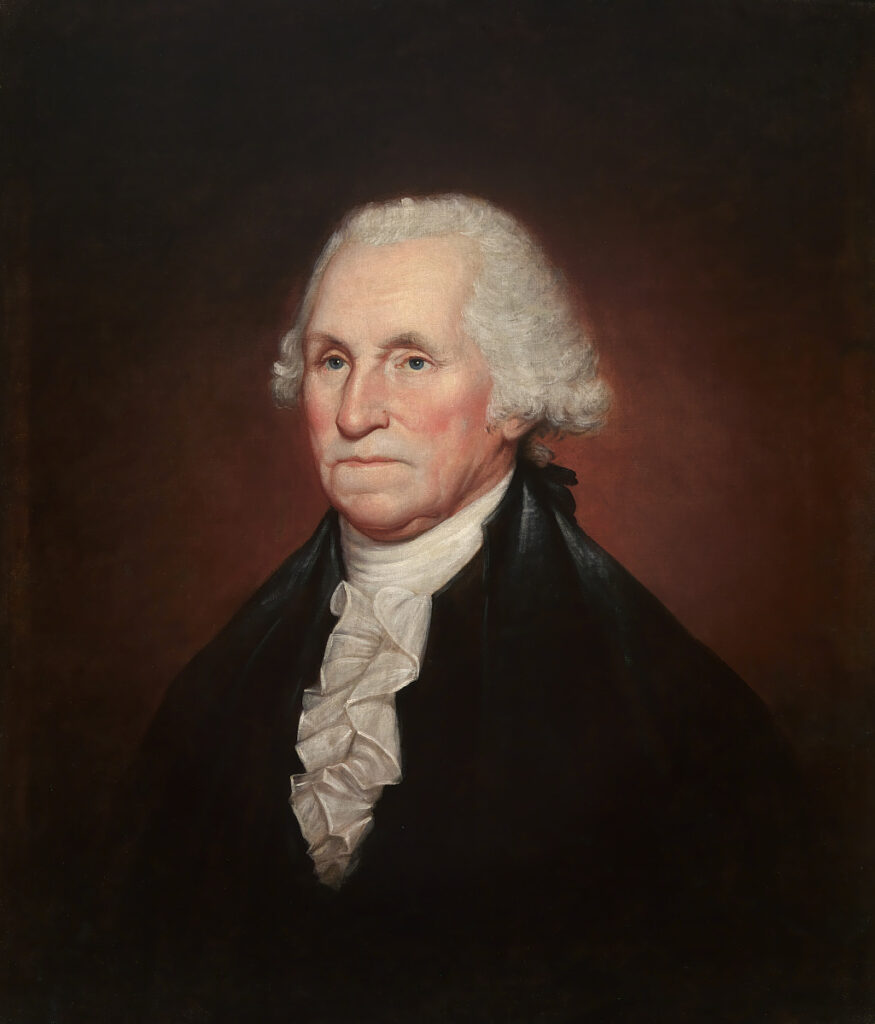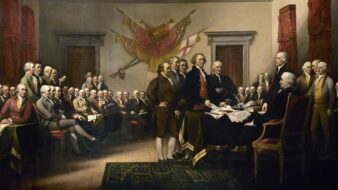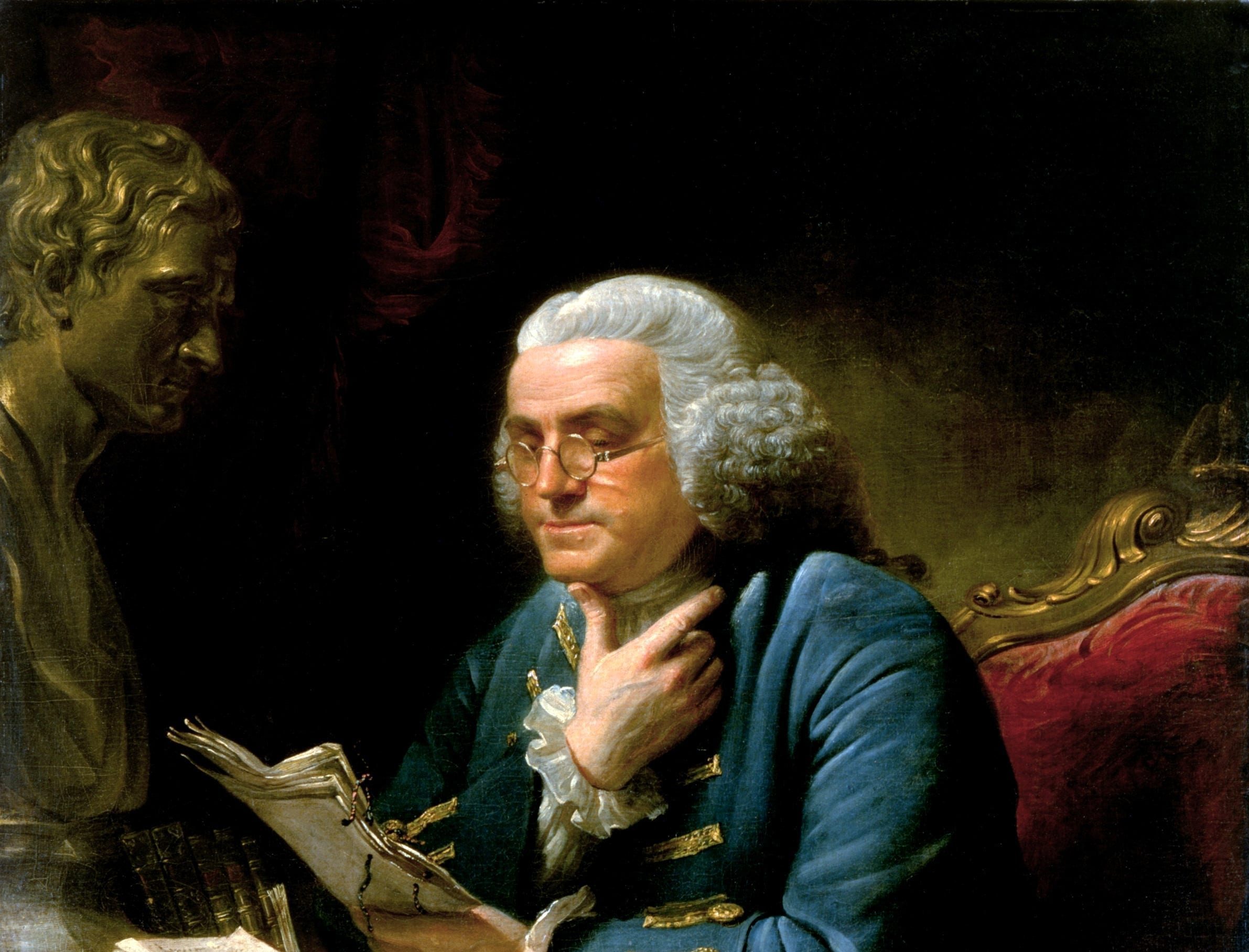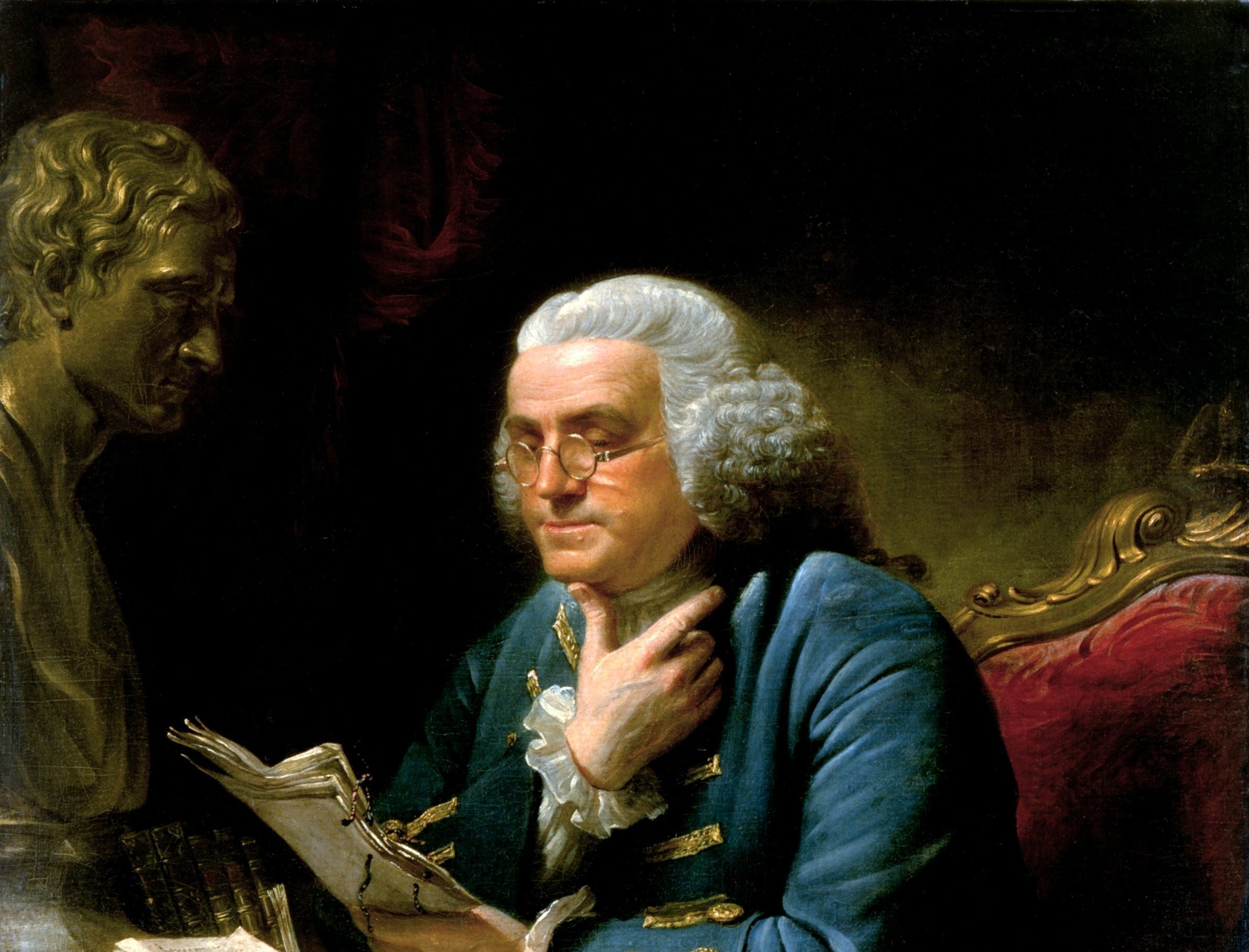“From George Washington to James McHenry, 22 August 1785,” Founders Online, National Archives, https://teachingamericanhistory.org/11td.
Dr. Sir:
Your letter of the first inst: came to this place whilst I was absent on a tour up the river, or an earlier acknowledgment of it shou’d have been sent to you: the inclosure shall, either by this or the next post, be sent to Dr. Gordon for his information, and that justice may be done to a character so deserving American gratitude and the pen of an historian, as the Marqs. de la Fayette.
I am very glad to hear that Congress are relieved from the embarrassment which originated with Longchamp: had the demand of him been persisted in, it might have involved very serious consequences; it is better for the Court of France to be a little vexed, than for it to have perservered in the demand of him.
As I have ever been a friend to adequate powers of Congress, without which it is evident to me we never shall establish a national character, or be considered as on a respectable footing by the powers of Europe, I am sorry I cannot agree with you in sentiment not to enlarge them for the regulating of commerce. I have neither time nor abilities to enter into a full discussion of this subject, but it should seem to me that your arguments against it; principally, that some States may be more benefited than others by a commercial regulation, apply to every matter of general utility; for can there be a case enumerated in which this argument has not its force in a greater or less degree? We are either a united people under one head, and for federal purposes; or we are thirteen independant sovereignties, eternally counteracting each other: if the former, whatever such a majority of the States as the Constitution points out, conceives to be for the benefit of the whole, should, in my humble opinion, be submitted to by the minority: let the southern States always be represented; let them act more in union; let them declare freely and boldly what is for the interest of, and what is prejudicial to their constituents; and there will, there must be an accommodating spirit; in the establishment of a navigation act, this in a particular manner ought, and will doubtless be attended to. If the assent of nine (or as some propose, of eleven) States is necessary to give validity to a Commercial system; it insures this measure, or it cannot be obtained: Wherein then lies the danger? But if your fears are in danger of being realized, cannot certain provisos in the ordinance guard against the evil? I see no difficulty in this, if the southern Delegates would give their attendance in Congress, and follow the example, if it should be set them, of hanging together to counteract combinations. I confess to you candidly, that I can foresee no evil greater than disunion than those unreasonable jealousies (I say unreasonable, because I would have a proper jealousy always awake, and the United States on the watch to prevent individual States from infracting the constitution with impunity) which are continually poisoning our minds and filling them with imaginary evils to the prevention of real ones.
As you have asked the question, I answer, I do not know that we can enter upon a war of Imposts with Gt: Britain, or any other foreign power; but we are certain that this war has been waged agst. us by the former, professedly upon a belief that we never could unite in opposition to it; and I believe there is no way of putting an end to, or at least of stopping the encrease of it, but to convince them of the contrary. Our trade in all points of view, is as essential to G: B: as hers is to us; and she will exchange it upon reciprocal and liberal terms, if better cannot be had. It can hardly be supposed, I think, that the carrying business will devolve wholly on the States you have named, or remain long with them if it should; for either G: B: will depart from her present contracted system; or the policy of the southern States in framing the Act of navigation, or by Laws passed by themselves individually, will devise ways and means to encourage seaman for the transportation of the product of their respective Countries, or for the encouragement of Manufactures. But admitting the contrary; if the Union is considered as permanent, (and on this I presume all superstructures are built) had we not better encourage seamen among ourselves, with less imports, than divide it with foreigners, and by increasing the amount of them, ruin our Merchants and greatly injuring the mass of our Citizens?
To sum up the whole, I foresee, or think I do it, the many advantages which will arise from giving powers of this kind to Congress (if a sufficient number of States are required to exercise them) without any evil, save that which may proceed from inattention, or want of wisdom in the formation of the act; whilst without them we stand in a ridiculous point of view in the eyes of the nations of the world with whom we are attempting to enter into Commercial treaties, without means of carrying them into effect; who must see and feel that the Union, or the States individually are sovereigns as best suits their purposes; in a word, that we are one nation today, and thirteen to-morrow, who will treat with us on such terms ? But perhaps I have gone too far, and therefore will only add that Mrs. Washington offers her compliments and best wishes for you and that with great esteem etc.



































































































































































